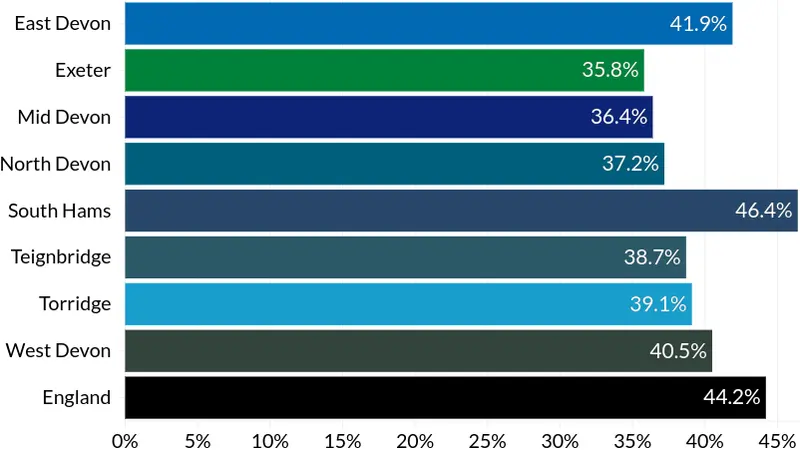A report by Devon public health director Steve Brown to the county’s health and well-being board has found that fewer than four in ten residents are eating five portions of fruit and vegetables each day, below the England average.
Only 35.8% of Exeter residents get their recommended 5-a-day, the lowest proportion in Devon.
The board, which brings together representatives from the county’s NHS trusts, ambulance, police, adult social care and health and children’s services, also heard that three in ten Devon residents are physically inactive – rising to nearly four in ten in Teignbridge – and that nearly two-thirds are overweight.
South Hams recorded both the highest proportion of residents who consume the recommended amount of fruit and vegetables – the only Devon district above the England average – and the highest proportion of physically-active adults, with North Devon and Torridge also above average.
East Devon recorded the lowest proportion of overweight resident adults in the county in health and well-being metrics have been updated to cover 2023-24.
The metrics are used to monitor progress against the 2020-25 Devon Joint Health and Well-being Strategy, which aims to co-ordinate approaches to public health across a range of health and social care priorities.
These are based on the county Joint Strategic Needs Assessment, which assesses current and future health and care needs to inform the planning and commissioning of health, well-being and social care services.
Local authorities and the integrated care boards that replaced clinical commissioning groups following the Health and Care Act 2022 are responsible for the preparation of joint local health and well-being strategies and joint strategic needs assessments.
Devon’s health and well-being board, which meets at County Hall, is tasked with fulfilling both statutory duties.
It began the process of producing a new countywide health and well-being strategy to cover the period from 2026 at its meeting last week.
A draft of the new strategy will be published for consultation in October with its approval expected early next year.
Democracy doesn’t work when people don’t know who is deciding what on whose behalf and what the costs and consequences of those decisions will be.
Exeter Observer is proving that reader-funded media can deliver the independent public interest journalism our local democracy needs.
Upgrade to a paid Exeter Observer subscription to support our work and get access to exclusive premium content and more.
Read full article at source
Stay informed about this story by subscribing to our regular Newsletter



